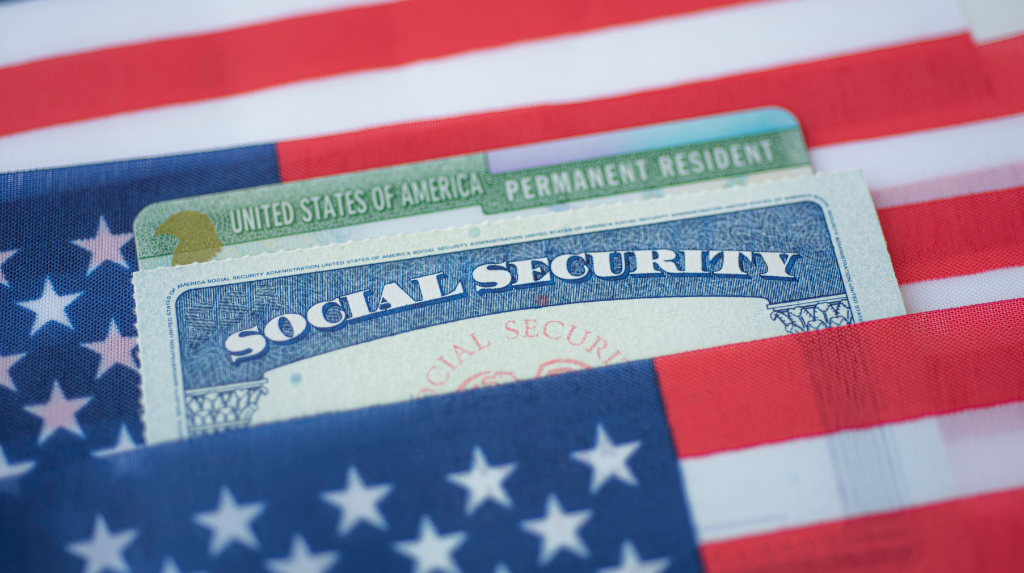The Social Security Number holds immense significance for individuals who have lived as undocumented in the United States. For many, the Deferred Action for Childhood Arrivals program paved the way to securing their first SSN.
The Permanence of Both
A Social Security Number (SSN) is a lifelong identifier that does not expire or get canceled, even if the DACA program ends. Contributions made by your employer using your SSN remain recorded, potentially allowing access to future benefits like retirement or disability.
If your SSN was obtained through DACA, your card may state: “VALID FOR WORK ONLY WITH DHS AUTHORIZATION.” This means that if you seek new employment after DACA ends, employers will require proof of your work authorization. Since your Employment Authorization Document (EAD) likely expired, U.S. employers would be unable to hire you legally.
The Uncertain Future
The fate of this program has remained uncertain for years. Initially introduced by President Obama as a temporary measure awaiting Congressional action, it has faced multiple challenges.
Strategic Planning for Beneficiaries
Its recipients have endured years of unpredictability while trying to chart their futures. If you currently hold DACA status and have not yet renewed it, it is imperative to submit a renewal application promptly.
Additionally, consulting an experienced immigration attorney is highly advisable to explore alternative pathways to lawful immigration status or even obtaining a U.S. green card (lawful permanent residence) during the time you’ve held It.
What alternatives do DACA holders have to maintain their lawful immigration status
1. Renew DACA
- Importance of Renewal: DACA recipients should renew their applications as soon as possible, even if their current status has expired. Legal challenges may allow for continued renewals, and maintaining DACA status can provide temporary protection from deportation and work authorization.
2. Explore Family-Based Immigration Options
- Family Petitions: DACA holders may be eligible for a family-based green card if they have a qualifying relative who can petition for them. This includes U.S. citizens or lawful permanent residents who are immediate family members.
- Section 245(i): This provision allows individuals who were beneficiaries of a family or employment petition filed before April 2001 to adjust their status, even if they lack lawful entry or status.
3. Employment-Based Residency
- Employer Sponsorship: If a DACA recipient has a job offer, they may qualify for employment-based residency through a petition filed by their employer. This process can be complex and typically requires legal assistance.
4. Humanitarian Options
- U Visa: Victims of certain crimes who cooperate with law enforcement may apply for a U visa, which provides work authorization and potential pathways to permanent residency after three years.
- VAWA Self-Petition: Individuals who have experienced abuse by a U.S. citizen or lawful permanent resident can self-petition under the Violence Against Women Act (VAWA) for legal status.
- Asylum: If a DACA recipient fears persecution in their home country, they might qualify for asylum, provided they file within one year of entering the U.S., although exceptions exist for changed circumstances.
5. Advance Parole
- DACA recipients can apply for advance parole to travel outside the U.S. and return legally, which may provide additional avenues for adjusting status upon re-entry.
6. Consult Legal Experts
- Seeking advice from an experienced immigration attorney is crucial. They can help identify eligibility for various immigration options and guide recipients through the application processes
The future of Deferred Action for Childhood Arrivals (DACA) and the associated Social Security Numbers (SSNs) is uncertain. While SSNs do not expire, their practical use for employment depends on DACA’s status and whether recipients obtain alternative immigration authorizations. To navigate this complex situation, it’s important to take proactive steps, including renewing DACA and seeking legal advice to explore options for securing your future in the United States.
How Law and Visas Can Help?
At Law and Visas, our team of expert immigration consultants is here to make your travel to the United States straightforward and successful. Whether you’re applying for a U Visa and or a T Visa, we handle every step—from preparing your application to gathering the required documents.
Our Immigration Consultants and Lawyers ensure that your application meets the highest standards, with no details missed. We’ll also keep you informed throughout the process and coordinate with the immigration office or embassy on your behalf.
Law and Visas has a strong record of helping clients secure the visas/permits they need to visit the United States. Call us today at +234 812 5505 986 to learn how we can assist you.





